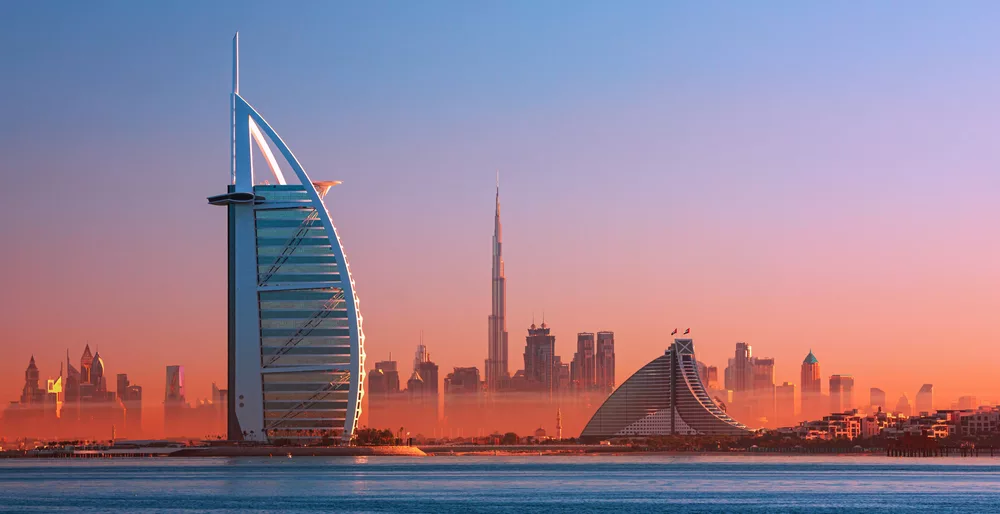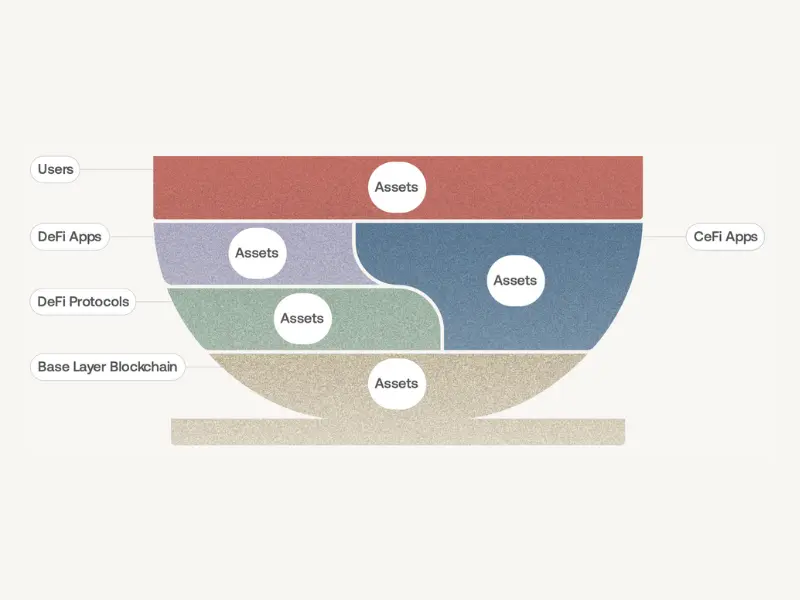
Summary
- The UAE is rapidly emerging as a significant crypto hub.
- The growth of crypto in the UAE is driven by the region’s welcoming regulatory environment and its proactive approach to supporting the digital asset sector.
- The authorities are committed to enforcing stringent Anti-Money Laundering (AML) and Know Your Customer (KYC) regulations, making it a secure destination for major industry players and investors.
- Read other Crypto in Action articles.
How is crypto used in the UAE?
The central bank does not license cryptocurrencies and they can’t be used as legal tender. Crypto assets can, however, be owned and traded.
Crypto adoption among the local population is low, at 10%, but is rising rapidly. Figures released in April 2024 revealed that the average daily number of crypto traders in the region surpassed 500,000 in February, marking a 51% year-on-year rise. The UAE leads adoption per capita, and over the same one-year period registered a 68% increase in daily traders.
The use of centralized crypto exchanges (CEXs) is rising, but crypto enthusiasts in the region are also attracted to decentralized finance (DeFi) and use exchanges like Raydium and Uniswap.
What’s notable about the UAE is how much its digital assets sector is developing. For some time, its largest city, Dubai, has been regarded as the Gulf’s crypto hub, but additionally Abu Dhabi is rapidly attracting attention. The Abu Dhabi Global Market (ADGM), the emirate’s financial center and international economic zone, reported that it is the region’s fastest-growing financial hub; assets under management have grown by 35%.
As part of moves to diversify its economy away from oil, the UAE has, in recent years, looked towards finance and technology. Crypto is well-placed at the nexus of these dual interests. The past two years has seen the government focus on developing a robust, flexible regulatory environment.
UAE and Crypto: How the right regulatory environment is supporting development
Abu Dhabi and Dubai are at the forefront of this change, with their regulatory efforts being described as ‘supercharged’ and their focus on digital assets with the aim of attracting large, institutional investment.
They’ve achieved this using a two-pronged strategy: by initially extending existing regulatory frameworks for traditional finance to include digital assets, and then introducing innovative regulation of digital asset exchanges.
Both emirates have pursued the same model – the creation of a free-trading area and a supportive, independent regulatory authority. In Dubai’s case, it has the Dubai International Financial Centre (DIFC), a tax-free zone that is fully foreign owned. Its Dubai Financial Services Authority is proactive and noted for balancing risk with innovation.
Similarly, Abu Dhabi created the offshore Abu Dhabi Global Market (ADGM), which has been operational since 2015, and is attracting increasing numbers of investors and companies with its mandate to encourage fintech. Its Financial Services Regulatory Authority (FSRA) is viewed as having a notably inclusive approach to digital asset regulation.
The difference between them has been described as Dubai being a more consumer-focused market, while Abu Dhabi typically focuses on the institutional.
Impact of Enhanced AML Regulations
After being placed on the Financial Action Task Force (FATF)’s grey list in March 2022, the UAE has made swift progress in tackling money laundering and financial crime. It has passed legislation, and both issued and enforced regulations.
Underscoring the strict approach, action has been taken against a number of companies, including some well-known names. In the first quarter of 2023, the UAE issued fines of more than Dh115 million ($31.3 million) for money laundering and illicit financial activity.
Among those fined have been the payments app, Wise, which was fined $360,000 over failures in its AML controls in August 2022. While in October 2023, the ADGM’s Financial Services Regulatory Authority fined locally-based financial tech company, Pyppl, $486,000 for its failure to fully comply with AML regulations.
The UAE was removed from the FATF’s grey list in April 2024.
What have been the effects of stepping up AML regulation?
Businesses and individuals are moving operations to the region. High-net-worth individuals (from both the traditional financial and crypto spheres) are setting up SPVs in Abu Dhabi. There are more than 5,000 special purpose vehicles (SPVs) now located in the ADGM, up from just 46 in 2016.
In April 2024, it was announced that QCP, a Singapore-based cryptocurrency trading firm, and Abu Dhabi-based Further Ventures, were going into partnership. With a QCP office to be set up in Abu Dhabi, their aim is to offer digital-asset financial and derivatives products.
During late 2023, a number of crypto firms, including Copper, Paxos and eToro, entered the market in Abu Dhabi as part of their wider moves to expand globally.
Crypto and digital asset legislation timeline
2018
Abu Dhabi Global Markets (via the Financial Services Regulatory Authority), introduced cryptocurrency and digital asset guidance, setting a regulatory benchmark.
2019
Abu Dhabi launched a global technology system, Hub71. The center houses start-ups and investors, and seeks to boost innovation. In 2023, it announced $2 billion in funding to support Web3 projects.
2021
A dedicated court was set up to hear cases of financial crime.
2022
In January, the UAE adopted a penal code designed to complement existing AML rules.
In March, the FATF added the UAE to its grey list.
The DIFC created the Virtual Asset Regulatory Authority (VARA), the first independent regulator for digital assets.
In December, VARA rolled out a full market product (FMP) regulatory regime. This followed several months where it granted provisional licenses to virtual asset service providers (VASPs), allowing them to set up offices and hire staff, but not get involved in customer-facing business. Following this, it set up a minimum viable product (MVP) license regime, allowing specific providers to operate in a limited capacity in authorized market segments. The FMP marked the development of this work.
The same month, the ADGM announced revisions to its AML and sanctions rules and guidance. Changes were made to provisions related to digital assets with the FATF’s travel rule.
2023
In January, the UAE’s cabinet introduced the first federal-level regulation governing virtual assets. This supervisory regime is designed to supervise the industry and protect investors.
In May, the UAE’s Central Bank issued AML and counter-terrorism financing guidance for financial institutions dealing with virtual assets.
In November, the ADGM released the Distributed Ledger Technology (DLT) Foundations Regulations 2023. It provides a comprehensive framework for DLT foundations and decentralized autonomous organizations (DAOs), enabling them to operate and issue tokens.
2024
In March, the DIFC announced the enactment of its Digital Assets Law. Alongside this, its new Law of Security and amendments to existing legislation are designed to provide clarity to investors and help the zone keep up with technological developments.
In April, the FATF removed the UAE from its grey list, after the country spent two years improving its financial regulatory framework.
Outlook – strong UAE crypto growth trajectory forecasted
Dubai and particularly, Abu Dhabi, have grown swiftly and with institutional investors seeking hubs with clear regulations and a welcoming attitude, look set to take advantage of growing digital asset investment.
Other emirates are showing growing interest in digital assets, potentially creating the situation where each will specialize in a particular branch. Sharjah is exploring blockchain applications, and Ras Al Khaimah is looking to attract blockchain business with its first Web 3-focused free zone.
A major next step for the UAE would be to harmonize regulation throughout the emirates, to ensure consistency and with it, an equally welcoming, conducive atmosphere for investors and business.

























